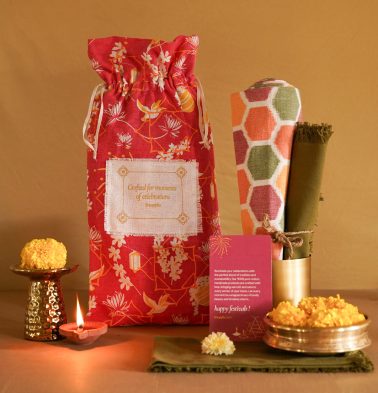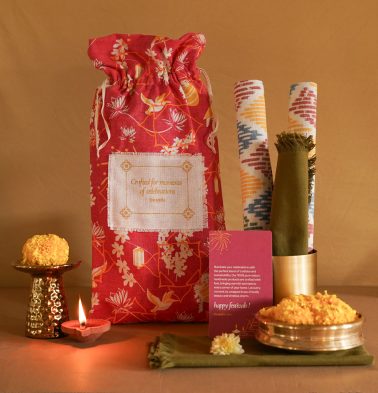- PRIVACY POLICY
- About
- All Categories
- Areca Palm
- Best Sellers
- Blog
- Bulk Orders
- Cart
- Chat with us
- Checkout
- Collections
- Contact For Bulk Order
- Corporate Gifts
- Cotton for a cause
- Covid-19 Update
- Customer Reviews
- Customised Curtains
- Customize
- Diwali Sale
- Edit Order
- explore
- Export Customer file for Facebook
- Feedback
- Furnish Your Dream
- Furniture
- Get in touch
- Gift Cards
- Holiday
- Home
- Home old
- Home1
- International Orders
- Kitchen and Table Best Sellers
- Limited-Time Deals
- Linen
- My Account
- My Gift Card
- New Arrivals
- Payment Policy
- Republic Sale 2026
- Returns and Cancellation Policy
- review
- Sale
- Sale Category
- Sale Today
- Shipping Policy
- Shop
- Shop the Look
- Subscribe
- Support
- TERMS & CONDITIONS
- test page
- test page
- Thank you
- Thank you
- Thank you
- Thoppia Best Sellers
- Track Order
- Verification
- Weaver’s Diary
- Wishlist
International Shipping Available: For details, click here.
Free Shipping: Domestic orders (within India) above ₹999 | International orders above $89.
New User Offer: Use WELCOME200 to get ₹200 off on Subtotal above ₹2999* (India only).
Prepay and Save: Enjoy extra discounts with prepaid orders.**(India only).
THOPPIA500: ₹500 off on Subtotal above ₹12,499*** (India only).
THOPPIA1000: ₹1000 off on Subtotal above ₹24,999*** (India only).
Weave-Unweave-Reweave – The Art of Warp Printing
Explore the intricate process of warp printing and how it creates stunning handmade ikat fabrics. Discover Thoppia’s ikat collection, showcasing the perfect blend of tradition and craftsmanship for your home.

Warp printing is a labor-intensive and intricate process, creating stunning ikat patterns that combine tradition, craftsmanship, and design. What sets this technique apart is that each step is done by hand— from the initial design creation to the final reweaving. This handmade and handwoven approach adds an undeniable value to the final product, making it a true work of art. If you’ve ever wondered why ikat fabrics are often more expensive than rotary-printed fabrics, now you’ll know the answer lies in the number of painstaking steps that go into creating them, in short we call this ‘Weave-Unweave-Reweave’. Let’s explore this beautiful process.
1. Creating the Design and Screen
Every ikat masterpiece starts with a creative vision. Designers draft patterns that will eventually be printed on the warp threads. This design is then transferred onto a screen, a key tool in ensuring consistency. The handmade nature of this process adds a personal touch— every screen is meticulously created to align with the ikat tradition, setting the foundation for a unique product
2. ‘Weave’ – Loosely Weaving the Fabric
The process continues with loosely weaving the fabric, but at this stage, only the warp threads (the vertical threads) are arranged. This loose weave allows flexibility during the printing process, ensuring the design transfers with precision. Each thread is carefully positioned to ensure proper alignment for the final pattern. The loose weave is essential in maintaining the integrity of the design throughout the printing and re-weaving stages, contributing to the high-quality result that defines ikat fabrics.

3. Screen Printing the Warp with the Right Mix of Colors
Once the fabric is loosely woven, the hand-screen printing process begins. Using natural dyes and hand-mixed colors, artisans carefully apply the design to the warp threads through the screen. The skill required here cannot be overstated; each print must align perfectly to ensure the final woven design will reflect the ikat aesthetic. The colors are blended in just the right way to create the blurred, dreamlike appearance that ikat fabrics are known for. Also, for every color in the design we need a different screen. It’s this hands-on craftsmanship that gives ikat its authenticity and deepens its value.

4. ‘Unweave’ – Undoing the Weaving
After printing, the fabric is carefully undone. Yes, that’s right— the loose weave is unpicked by hand so that the dyed warp threads can be prepared for the final reweaving. This might seem like an unnecessary step, but it’s essential to the creation of a perfect ikat pattern. Undoing the weaving requires an eye for detail to preserve the printed design without damaging the threads.

5. ‘Reweave’ – Reweaving to Create the Ikat Print
In the final step, the warp threads are woven back together by hand. This is where the true magic of ikat comes to life. As the threads are woven tightly, the printed design begins to align, forming the characteristic blurred edges that define the ikat aesthetic. Each re-weaving step requires precision, as the final fabric is entirely dependent on the proper alignment of the dyed threads. This is why ikat fabrics, especially those that are handmade and handwoven, are considered a premium product.

Why Ikat Costs More
When comparing ikat fabrics to rotary-printed textiles, you can now see why ikat carries a higher price tag. Unlike machine-made rotary prints, ikat fabrics are crafted through a complex, time-consuming process involving multiple stages of manual work. The weaving, printing, and dyeing are all done by skilled artisans, and each step adds both value and uniqueness to the final product. The result is a handcrafted textile that tells a story— and that’s why ikat is so highly valued in the world of fabrics.
Thoppia’s Ikat Creations
Thoppia is renowned for reimagining the timeless beauty of ikat and bringing it into contemporary homes. From elegant table linens to stunning curtains and cozy cushion covers, each piece reflects the intricate artistry of warp printing. Handmade and hand woven with care, Thoppia’s ikat creations aren’t just home décor— they are living expressions of tradition and craftsmanship.
Whether you’re refreshing your space or searching for a thoughtful gift, Thoppia’s ikat collection offers the perfect blend of elegance and authenticity. This festive season, explore their newly curated warp-printed ikat gift sets— an eco-friendly choice that embodies both beauty and sustainability. Visit thoppia.com to discover the ideal gifts for Diwali or any celebration, and bring home a piece of art steeped in tradition.

Conclusion
The warp printing process is a labor of love, with each step handled by skilled hands to create textiles that are as unique as they are beautiful. Ikat fabrics, with their handmade and handwoven origins, carry with them the essence of craftsmanship, making them truly special. So the next time you admire an ikat piece from Thoppia, you’ll appreciate not just its beauty, but the meticulous craftsmanship that makes it a masterpiece.







